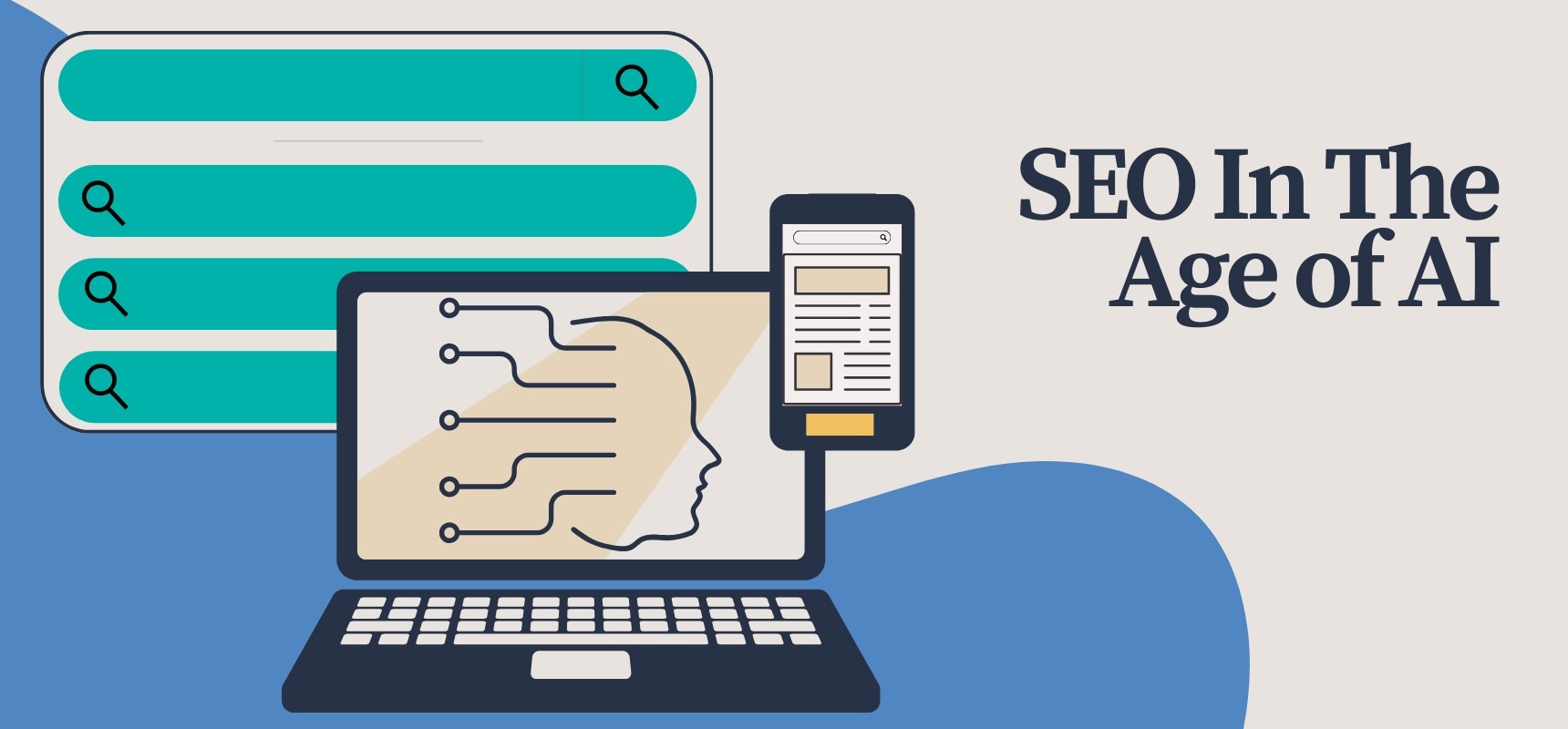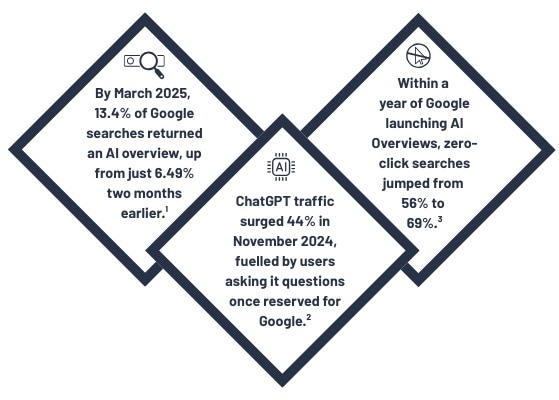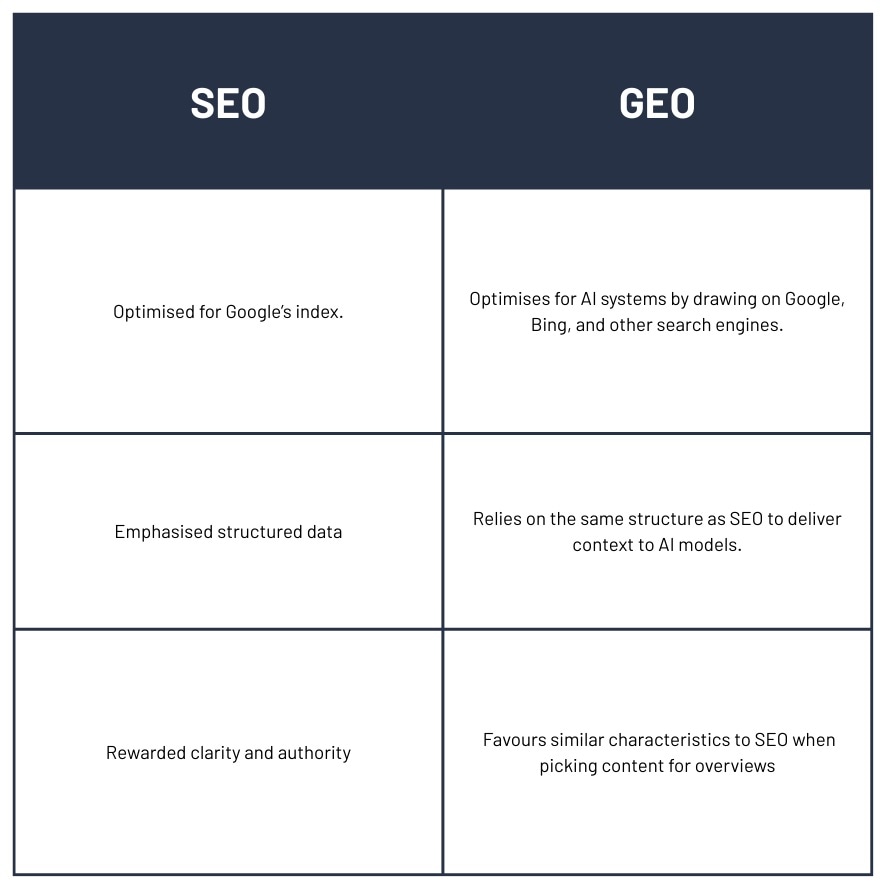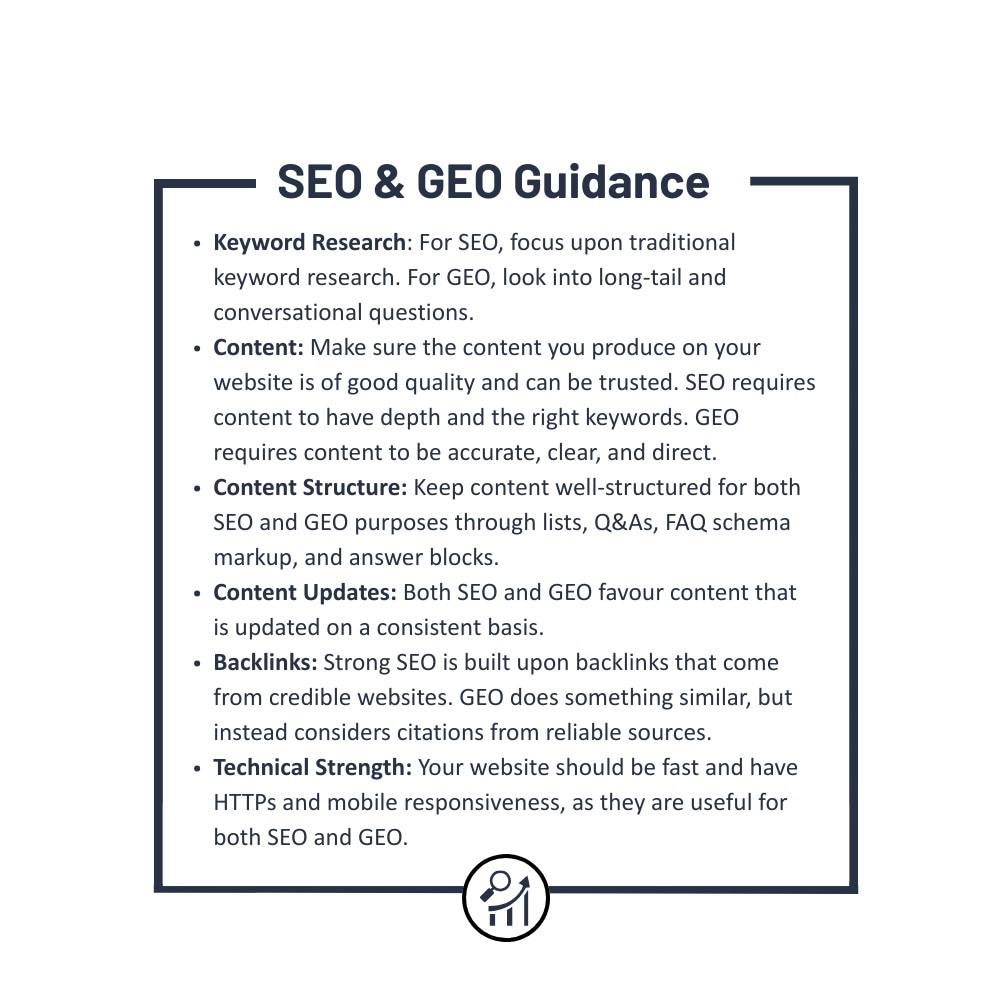
Why GEO Is An Extension of Search Engine Optimisation, Not a Replacement
Digital visibility has long been defined by SEO. For two decades, marketers have applied their skills, fine-tuning keywords, producing authoritative content, and optimising websites, to achieve a high ranking in the search results. This visibility has translated into traffic, clicks, and business growth. But times are changing, and so is SEO.
The rise of AI overviews and Generative Engine Optimisation (GEO) is shaping how users find and consume information. Nowadays, many searchers do not need to even reach a website at all. Instead, their questions are instantly answered in an AI-generated summary. Known as the zero-click phenomenon, it has left many brands questioning: is SEO truly dead?
Answering such a question proves trickier than it initially appears, as the reality is more nuanced. Far from replacing SEO, GEO has simply moved it towards a new stage in evolution, one that allows GEO to build upon it as a foundation.
The AI Shift in Search Behaviour
Consider the following data:

These changes do not reflect a marginal trend. Instead, they show a systemic change in how users interact with information. And the effects are not distributed evenly. Science and health websites, for example, are being hit harder than most. SEMrush data shows that AI overviews in science-related searches grew 22.27% between September 2024 and March 2025, the steepest increase across all studied categories.¹
Science websites tend to offer evidence-based content, which can explain why they are being targeted, as AI systems can transform their writing into clear summaries. On the one hand, these overviews can make the science content more visible, citing the science website as a trusted source. However, on the other hand, it can decrease the traffic to the website, ultimately impacting its click rate.
GEO & SEO: More Similar Than You Think
At first, GEO may appear like a new discipline, yet its resemblance to SEO is uncanny. Both SEO and GEO aim to achieve visibility by aligning themselves with the systems that provide it.

At the heart of GEO lies SEO, subtly directing it towards the right content for an AI overview. GEO is influenced by SEO because AI cannot utilise content that has not already been made discoverable, trustworthy, and relevant, something which is only possible through SEO practices. Therefore, SEO is not obsolete. Instead, it is indispensable, having become the basis without which GEO could not exist.
From Traffic to Engagement
It is clear that GEO has created enough disruption for businesses to see their declining traffic as a threat to their visibility and potential customer base. However, although AI summaries may reduce volume, they also filter audiences more efficiently. What emerges is a smaller pool of extremely relevant, higher-intent visitors, the kind most likely to engage, convert, or purchase.
Optimisation strategies will need to change due to GEO, but this does not mean that the changes will be extensive. Instead, aligning content with the requirements of both SEO and GEO will position websites as trusted sources that capture the attention of potential customers.
 Meeting the Challenges of GEO
Meeting the Challenges of GEO
Disruptions are a natural part of the search ecosystem, and are essential to how it evolves. Brands who come out relatively unscathed by it are those who will recognise the continuity within the change. Just as early SEO pioneers learned how to work with algorithms, it is vital to do the same with AI overviews. While maneuvering through the updates of GEO, it is crucial not to abandon the vital skills learned from SEO. The solution lies in adapting them to fit a new model.
Simply put, GEO is SEO for the AI age. Visibility no longer depends solely upon a channel like Google, Bing, or any other search engine. It is achieved by establishing a presence wherever your audience finds an answer, such as in an AI-generated summary. SEO has not been erased by GEO, rather it has been transformed into something new that companies can use to thrive.
With that said, there is one final question that businesses must consider: “How can we extend SEO into GEO - and seize the opportunity AI has created?” Such a decision is ultimately up to you.
At AZoNetwork, we help science, healthcare, and technology companies evolve their SEO strategies to meet the demands of today’s AI-driven search landscape. If you’re ready to understand where your website stands, and where it could go, request a free SEO site audit today.
References
- SEMRush AI Overviews Study
- Bain – Zero Click Search Redefines Marketing
- Similarweb – Generative AI & Publishers Report
- Forbes – The 60% Problem
- Lily Ray – Rise of AI Search